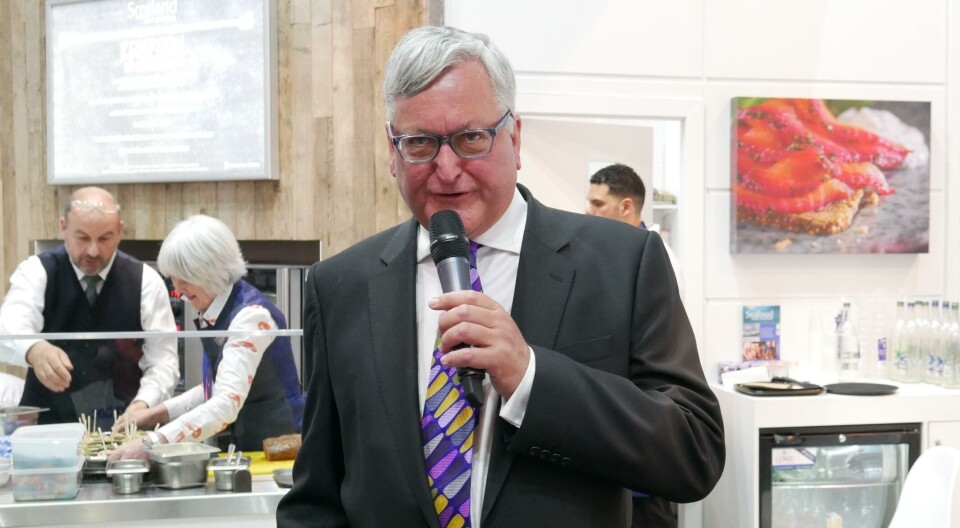
Ewing: Westminster must cover costs of Brexit for seafood
The UK government should give an immediate commitment to cover the cost to business and government of leaving the European Union, Scotland’s rural economy secretary Fergus Ewing has said.
The Holyrood minister’s demand came a week after a warning from the Scottish Salmon Producers’ Organisation (SSPO) that the Brexit deal being pursued by the UK government is likely to place “huge unnecessary burdens” on the sector and could add as much as £8.7 million a year in costs for Export Health Certificates (EHCs).
EHCs are not currently required for the export of salmon and other seafood to the EU, but that will change when the Brexit transition period finishes on December 31.
Additional checks
The Scottish seafood industry has estimated that EHCs and the associated customs clearance and transportation documents will cost it between £7m and £15m a year. There will also be additional costs for relevant authorities to recruit and train sufficient numbers of certifying officers to meet the increase in demand for EHCs.
Speaking ahead of a visit to Belfast for a meeting with UK government and devolved government counterparts, Ewing said: “With the UK government finally accepting Brexit will result in additional border checks and certification, they now need to commit to meeting the costs for businesses and authorities that come as a consequence.
“The requirement for each consignment of our seafood exports to be accompanied by an EHC provides a good example of the impacts and costs.
£694m in 2018
“Fish, crustaceans and molluscs are Scotland’s third most important sector in terms of goods trade to the EU – amounting to £694 million in 2018.
“The imposing of EHCs is a significant non-tariff barrier for businesses, particularly in the seafood sector, that trade with the EU. Even with our risk-based approach to certification, the costs and administrative burdens for the sector and local authorities is expected to cost up to £15 million a year, placing the long-term viability of many businesses at risk.
“With more than 150,000 consignments of products of animal origin exported to the EU each year, we continue to press the UK government to negotiate a derogation or find a way to significantly reduce the bureaucratic burden of export certification. Failing this, the UK government should cover the cost to exporters and authorities.”

‘A real concern’
James Withers, chief executive of Scotland Food & Drink, said: “Additional bureaucratic costs and the associated risk of delays is a real concern. Costly new checks and processes - and potentially tariffs on some of our food products - will act as a major new barrier to trade with our biggest single export market.
“Scotland sold £2 billion of food and drink to the EU last year, and frictionless trade is particularly important for Scotland’s unrivalled stock of perishable produce, where time is of the essence.”
SSPO chief executive Julie Hesketh-Laird said last week: “About 300 salmon orders are dispatched to the EU every day by road and through the Channel Tunnel. If each one – or even each lorry load – had to have an extra certificate, signed by a vet or an environmental health officer, it would not only add delays and cost to Scottish salmon exports, it would give our international competitors an advantage they would be unlikely to pass up.”
The SSPO is asking the UK government to:
- Stay aligned with the EU on seafood exports after the end of the transition period so no EHCs will be needed.
- Make the transport of seafood to the EU without EHCs a key condition in negotiations over the future trading arrangement between the UK and the EU.
- Accelerate the process, already started by the UK Animal and Plant Health Agency, to digitalise the EHC process, making it swifter and simpler.
- Negotiate for the continued tariff-free access to the EU for Scottish salmon after the end of the transition period.























































